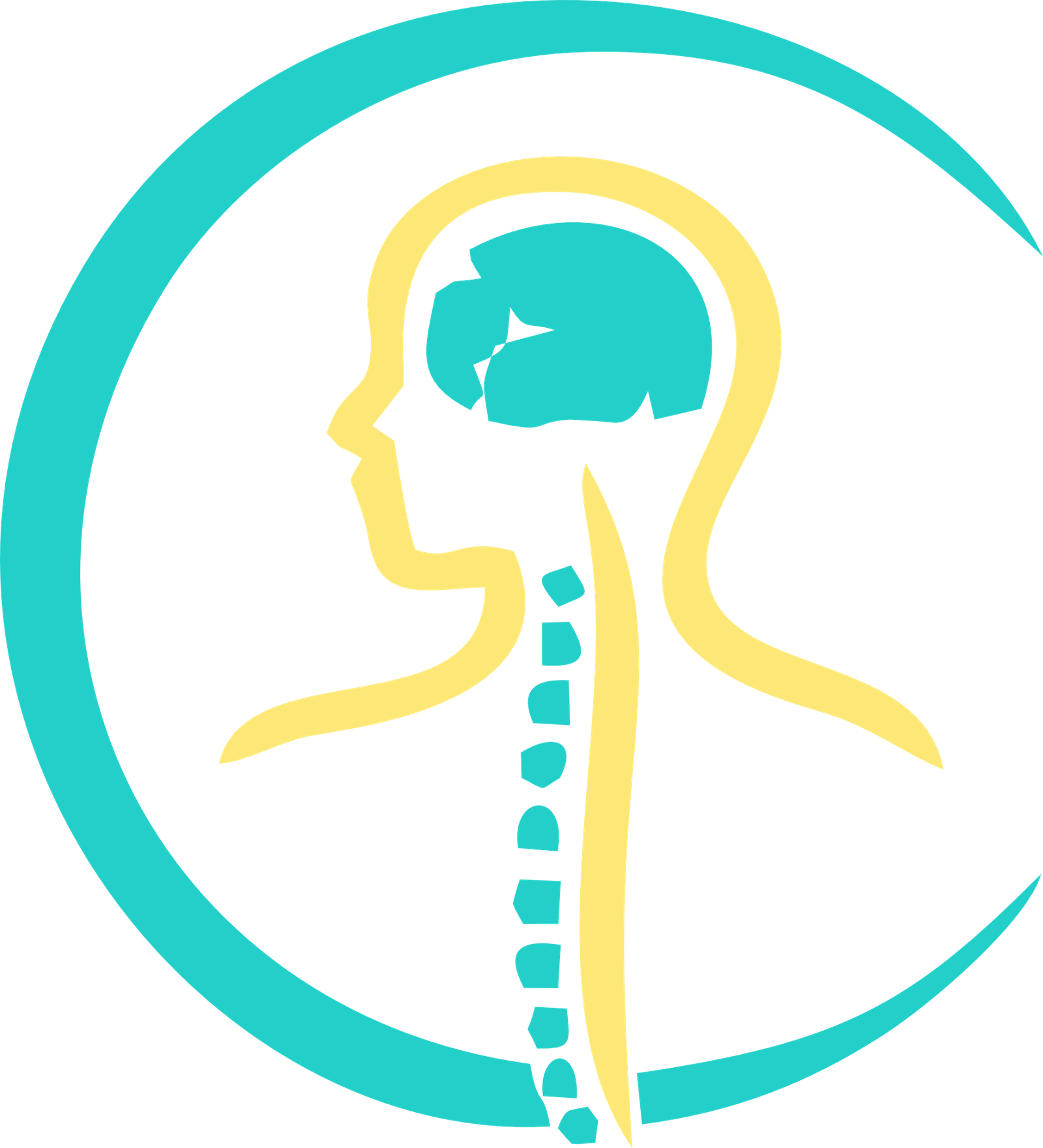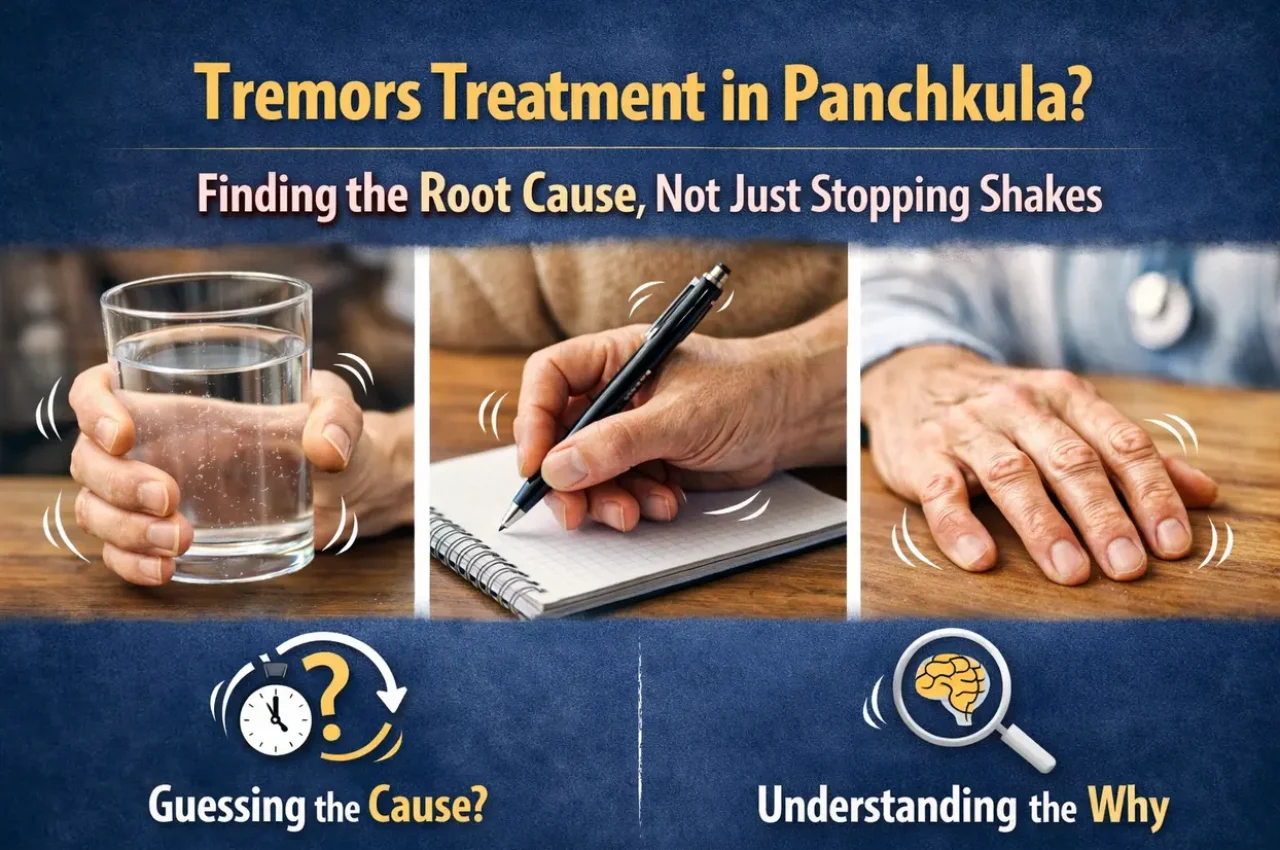Have you ever woken up with a strange tingling in your feet and wondered what’s going on? Most people in Panchkula have felt it at some point. It starts with a little buzzing under your toes or a faint burning in your soles. You shake your foot, it fades, and you move on. But sometimes, that harmless tingling is actually your body’s first warning sign of vitamin deficiency and tingling feet Panchkula residents often overlook.
When your body doesn’t get enough essential vitamins, especially B12 and D, your nerves lose their protective strength. Over time, they start sending mixed signals, leading to nerve damage symptoms like numbness, weakness, and pain in your hands and feet.
In a city like Panchkula, where long sitting hours, indoor work, and irregular diets are common, these early signs of neuropathy are quietly growing. The good news is that vitamin-related nerve problems can often be reversed if caught early.
So, if you’ve been feeling tingling hands and feet, mild numbness in your feet, or a burning sensation at night, your body might be trying to tell you something.
“Nerves rarely fail overnight. They give you quiet signs long before they shout.”
What Happens When Your Body Lacks Essential Vitamins
Your nerves are like tiny electrical wires. They need vitamins to stay strong, insulated, and responsive. When that nutrition drops, the insulation weakens, and signals start misfiring. The first to suffer are usually the nerves in your feet because they are farthest from your spine, the main power source.
The Link Between Vitamins and Nerve Health
Vitamins like B12, B6, D, and Folate help maintain the protective layer around your nerves called myelin. Think of it as a cable cover. Once it weakens, the current becomes unstable. That’s when you feel tingling, numbness, or that pins and needles feeling.
A lack of these nutrients means your nerves can’t communicate properly with your brain. You might trip more often, drop things from your hand, or feel your feet getting unusually cold or heavy.
According to the National Institutes of Health (NIH), Vitamin B12 deficiency is one of the most common and reversible causes of neuropathy.
How Vitamin Deficiency Affects the Nerves in Your Feet and Hands
The feet and hands are the body’s endpoints the last in line for proper blood flow and nerve support. When vitamin deficiency sets in, the nerve endings in your feet don’t get enough oxygen or nutrition. As a result, blood circulation slows, leading to tingling, numbness, or burning sensations. Many people in Panchkula notice these early signs but mistake them for simple fatigue. In reality, these are classic vitamin deficiency and tingling feet Panchkula symptoms that signal poor nerve health. Over time, even normal pressure from shoes can trigger pain, irritation, or persistent tingling clear warnings that your vitamin levels and nerve function need attention.
The Most Common Vitamin Deficiencies Behind Tingling Feet
Not all tingling comes from nerve injury or posture. Sometimes, your nerves are simply running low on the nutrients they need. Let’s look at the top vitamin deficiencies causing nerve pain in Panchkula.
Vitamin B12 Deficiency, The Leading Cause of Nerve Damage Symptoms
Vitamin B12 is like armor for your nerves. It keeps the outer covering (myelin sheath) intact so electrical signals travel smoothly.
When you have vitamin B12 deficiency, your feet start tingling or going numb. You may feel weak or unsteady while walking. In long-term cases, you can develop peripheral neuropathy.
It’s especially common among vegetarians and older adults because B12 mostly comes from animal-based foods.
Sources include eggs, fish, chicken, milk, and fortified cereals.
Vitamin D Deficiency: How Lack of Sunlight Affects Nerve Function
We usually link Vitamin D to bone health, but it’s also vital for nerves and muscles. In Panchkula, many people spend most of their time indoors, which reduces sun exposure.
Low Vitamin D can cause tingling and dull pain in feet or legs, weakness while standing or climbing stairs, and poor nerve-muscle coordination. It can even worsen neuropathy symptoms in people with thyroid or diabetes.
Vitamin B6 and Folate, Small Gaps That Cause Big Problems
Vitamin B6 and Folate, these two vitamins help your brain and nerves stay in sync. When either drops, your nerves become overactive and start firing irregularly.
Symptoms may include mild tingling in fingers and toes, fatigue, low mood, or occasional muscle twitching. Overusing B6 supplements can ironically cause neuropathy too, so always test before taking them.
Sources include bananas, spinach, lentils, eggs, and chickpeas.
Combined Deficiencies -When Multiple Vitamins Affect Nerve Health
Many vitamin deficiency and tingling feet Panchkula cases involve more than one deficiency. Low B12 weakens the nerve cover, low D affects calcium and nerve function, and folate imbalance limits oxygen supply. Together, they create tingling, burning, and cold sensations.
How Vitamin Deficiency Causes Tingling, Numbness, and Pain
Your nerves send thousands of tiny signals every second. Without the right vitamins, those signals get distorted, and you start feeling tingling or pain.
Why Nerves Misfire When Nutrients Are Low
When vitamins like B12, D, and Folate drop, your nerve coating becomes thin. The electric signals between your brain and feet leak, creating a buzzing or burning sensation.
Symptoms to Watch For
- Tingling or pins-and-needles in hands and feet
- Numbness, especially when walking or resting at night
- Burning or freezing sensations
- Weak grip or frequent stumbling
If these symptoms repeat often, it’s time to test your vitamin levels.
How These Early Signs of Neuropathy Go Unnoticed
In Panchkula, most people assume it’s fatigue or posture-related. But if both feet tingle or go numb regularly, it’s likely more than posture. Long working hours, limited sunlight, and irregular meals make vitamin deficiency extremely common here.
“Your nerves whisper before they fail. Catching those whispers early can save years of discomfort.”
Vitamin Deficiency vs Neuropathy, What’s the Difference
It’s easy to confuse vitamin deficiency with neuropathy. The sensations are similar, but the causes differ.
Vitamin-related tingling is reversible if treated early, while neuropathy involves permanent nerve injury if ignored.
So, if tingling fades after supplements or rest, it’s probably vitamin-related. But if it persists for weeks, it may have progressed into chronic neuropathy.
How to Diagnose Vitamin-Related Nerve Pain in Panchkula
Testing is the easiest way to confirm vitamin deficiency and tingling feet Panchkula cases.
- Blood Tests: Check levels of Vitamin B12, D, B6, and Folate.
- Nerve Conduction Study (NCS): Measures how fast and strong your nerves send signals.
- Electromyography (EMG): Checks muscle response to nerve activity.
According to the Cleveland Clinic, these tests can detect neuropathy even before symptoms become severe.
How to Treat and Reverse Vitamin Deficiency Neuropathy
The best part about vitamin-related nerve pain is that it’s reversible in most cases.
- Take doctor-prescribed supplements for Vitamin B12 and D.
- Eat meals rich in protein, dairy, and leafy vegetables.
- Avoid alcohol and smoking, which block vitamin absorption.
Never self-medicate. Too much B6 or D can harm nerves instead of helping.
Lifestyle and Diet Tips to Keep Your Nerves Healthy
Good nerve health starts with small daily habits.
- Get 15 minutes of morning sunlight every day.
- Walk or stretch every hour to improve blood flow.
- Eat home-cooked meals instead of processed snacks.
- Stay hydrated and limit caffeine.
In Panchkula’s busy lifestyle, these simple actions can prevent vitamin deficiency and tingling feet from developing into neuropathy.
When to See a Neurologist for Tingling or Numbness in Panchkula
If tingling or numbness lasts more than a week, or spreads to both feet, it’s time to visit a neurologist.
- Red Flags to Watch:
- Tingling that disturbs your sleep
- Burning pain in feet or hands
- Weakness or frequent tripping
- Numbness that doesn’t fade after rest
Early care helps prevent long-term nerve damage.
Conclusion: Don’t Ignore the Signs Check Your Vitamin Levels Today
Nerve health fades quietly, but your body always gives clear signs if you pay attention. If you’ve been feeling tingling, burning, or numbness in your feet, it might be more than just tiredness it could be an early sign of vitamin deficiency and tingling feet Panchkula residents commonly face. These mild sensations are often your first nerve damage symptoms, showing that your nerves are not getting the nutrition they need.
A simple blood test or Nerve Conduction Study in Panchkula can easily reveal if your nerve pain is due to a vitamin deficiency, poor circulation, or another underlying neuropathy issue. The good thing is, when detected early, vitamin-related nerve damage can often be reversed with proper treatment and lifestyle changes.
If you’re in Panchkula and noticing numbness in feet, persistent tingling, or burning sensations at night, don’t wait for it to get worse. Book a quick neurology consultation or vitamin deficiency test today. Acting early can protect your nerves, prevent chronic pain, and keep your body healthy for years to come.
“Healthy nerves are silent. When they start to speak, it’s time to listen.”










